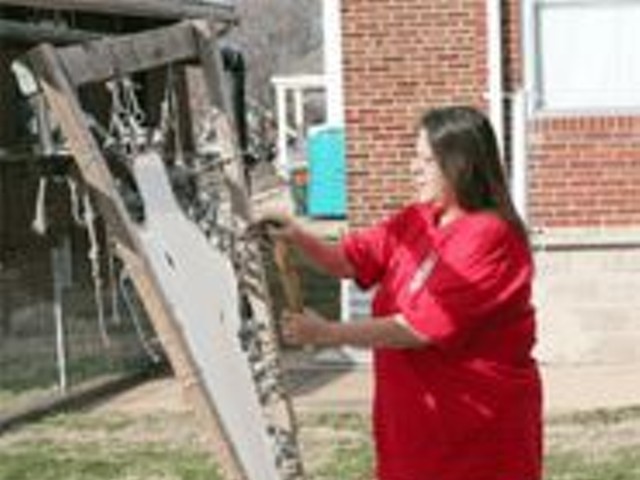John "Don't Call Me Cougar" Mellencamp, Seymour, Indiana
I've seen it several times. Since you mentioned it, though, it has really made me think. Prior to, however, I ignored it by seeing and by not seeing. Since then I've wondered how it is possible for a capitalistic society and a so-called Christian society to walk together hand-in-hand. The only answer I can arrive at is that both are corrupt. Take, for instance, this commercial. Just the other day a TV reporter remarked that more bodies from 9/11 had been found. Before this discovery, the bodies had been given up on and workers at the site were preparing to give them a concrete burial, like the one rumored about Jimmy Hoffa. Imagine the nightmare relatives were forced to relive turned into a commercial with intent to sell a damn truck!
At 9/11's outbreak, Bush seized the opportunity to play his politics, standing by the demolished World Trade Center, making promises to avenge the foul play. Since that horrible occasion, much grief has followed. Protesters against his conflict in Iraq have been dubbed "unpatriotic" — the most vivid being Ms. Cindy Sheehan, mother of a fallen soldier, who voiced her feeling against the Iraq conflict.
Sadly, the picture of Ms. Rosa Parks riding the bus and Dr. Martin Luther King speaking sparked the documentary Eyes on the Prize, a film that chronicled a people's fight for equality while facing dogs, cattle prods and firehoses. For his role in the affair, King would be classified as a communist. He'd later speak out against the war in Vietnam and die. During the filming of Eyes on the Prize, buried bodies of civil rights workers Andrew Goodman, Michael Schwerner and James Chaney were found in Philadelphia, Mississippi. This, after taking a stand for this false belief that "this is our country" (a slogan developed a century after the American Revolution).
Muhammad Ali, then the world heavyweight boxing champion, lost his crown for revolutionizing the country by not stepping up to be inducted into the military, because of his religious beliefs. The church in God's eyes is as one. In America it has been made into anything that serves one's personal needs. For instance, Bush, the compassionate Christian, is supported by evangelicals, a group of churchgoers whose path leads back to bondage. The majority black church continues to be silent in its neutral position, though claiming credit for the civil rights movement. The church, period, is said to be the moral arm of any community.
Had politics not been thrown in with God's work, abortion wouldn't be an issue and neither would stem-cell research. Then Michael J. Fox wouldn't have been made a scapegoat on these big-time TV ads regarding the stem-cell issue, a subject Ronald Reagan's son spoke out against. Maybe one day we will all learn that politics, TV commercials and the church make up a capitalistic society — all for one, and one for all, with truth being an unwanted item.
Prince Joe Henry, one of professional baseball's original "clowns," was
an all-star infielder for Negro League baseball teams in Memphis,
Indianapolis and Detroit throughout the 1950s. But up until the late 1940s,
Prince Joe didn't know anything about the Negro Leagues. His knowledge of
organized baseball was limited to the Cardinals and Browns games he attended
during his preteen years at Sportsman's Park, accompanied by lifelong buddy
Eugene "Gene" Crittendon, who could pass for white.
Perhaps Henry's most vivid memory of those games: Upon entry, white ushers would politely escort the boys to a small section of the left-field stands reserved for "Colored." After climbing past several tiers of bleachers, they'd arrive at their stop, rows and rows behind their white counterparts.
Even at a young age, the boys were conscious of the double standard -- and determined to vent their disdain. The opportunity would arise with the urge to urinate. Rather than head for the latrine, the boys would edge their way to the front of the section and let fly. As the liquid foamed its way down the concrete steps toward the white kids, Henry and his pal would ease back and relax, politely rooting for the visiting team to beat the hell out of the Browns or the Cards.
After all, Henry and Crittendon hailed from Brooklyn, Illinois, a small, predominantly black township just east of the Mississippi River. So hospitable were the residents of Brooklyn that they were known to take in a rank stranger, treat him to breakfast, lunch, supper and a night out on the town -- and afterward, if he messed up, treat him to a good ass-whippin'.
Direct questions on any and all topics to [email protected]. If we don't like yours, we'll hit Joe with our own.





